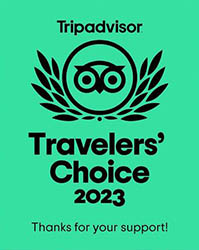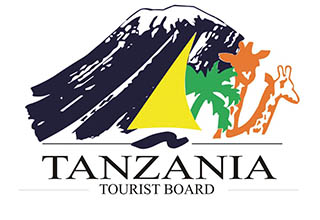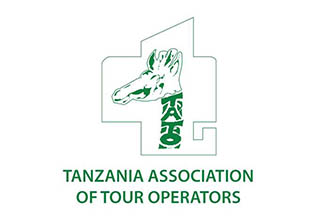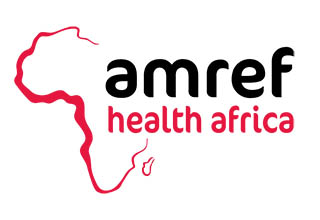The following are recommended Vaccinations and Preventive Medications
The following vaccines may be recommended for your travel to East Africa. Discuss your travel plans and personal health with a health-care provider to determine which vaccines you will need.
Hepatitis A or immune globulin (IG). Transmission of hepatitis A virus can occur through direct person-to-person contact; through exposure to contaminated water, ice, or shellfish harvested in contaminated water; or from fruits, vegetables, or other foods that are eaten uncooked and that were contaminated during harvesting or subsequent handling.
Hepatitis B, especially if you might be exposed to blood or body fluids (for example, health-care workers), have sexual contact with the local population, or are exposed through medical treatment. Hepatitis B vaccine is now recommended for all infants and for children ages 11-12 years who did not receive the series as infants.
Malaria: your risk of malaria may be high in all countries in East Africa, including cities. See your health care provider for a prescription antimalarial drug.
Meningococcal (meningitis) if you plan to visit countries in this region that experience epidemics of meningococcal disease during December through June.
Rabies, pre-exposure vaccination, if you might have extensive unprotected outdoor exposure in rural areas, such as might occur during camping, hiking, or bicycling, or engaging in certain occupational activities.
Typhoid vaccine. Typhoid fever can be contracted through contaminated drinking water or food, or by eating food or drinking beverages that have been handled by a person who is infected. Large outbreaks are most often related to fecal contamination of water supplies or foods sold by street vendors.
Yellow fever, a viral disease that occurs primarily in sub-Saharan Africa and tropical South America, is transmitted to humans through the bite of infected mosquitoes. The virus is also present in Panama and Trinidad and Tobago. Yellow fever vaccination is recommended for travelers to endemic areas and may be required to cross certain international borders (For country specific requirements, see Yellow Fever Vaccine Requirements and Information on Malaria Risk and Prophylaxis, by Country.). Vaccination should be given 10 days before travel and at 10 year intervals if there is on-going risk. • As needed, booster doses for tetanus-diphtheria, measles, and a one-time dose of polio vaccine for adults.
If you plan to extend your stay in East Africa;
Malaria is cause for concern when traveling through East Africa and Tanzania is no exception. If you plan to extend your time beyond the climb we strongly recommend you take anti-malarials. If not, we strongly recommend you speak to your doctor before making a decision.
All travelers should take one of the following drugs:
- atovaquone/proguanil,
- doxycycline,
- mefloquine, or
- primaquine (in special circumstances).
Yellow Fever
A certificate of yellow fever vaccination is required for entry into Tanzania when arriving from countries where yellow fever is present.
Food and Waterborne Diseases
Make sure your food and drinking water are safe. Food and waterborne diseases are the primary cause of illness in travelers. Travelers’ diarrhea can be caused by viruses, bacteria, or parasites, which are found throughout East Africa and can contaminate food or water. Infections may cause diarrhea and vomiting (E. coli, Salmonella, cholera, and parasites), fever (typhoid fever and toxoplasmosis), or liver damage (hepatitis).
To stay healthy, do…
Wash your hands often with soap and water or, if hands are not visibly soiled, use a waterless, alcohol-based hand rub to remove potentially infectious materials from your skin and help prevent disease transmission.
In developing countries, drink only bottled or boiled water, or carbonated (bubbly) drinks in cans or bottles. Avoid tap water, fountain drinks, and ice cubes. If this is not possible, learn how to make water safer to drink.
Take your malaria prevention medication before, during, and after travel, as directed. (See your health care provider for a prescription.)
To prevent fungal and parasitic infections, keep feet clean and dry, and do not go barefoot, even on beaches.
Always use latex condoms to reduce the risk of HIV and other sexually transmitted diseases.
Protect yourself from mosquito insect bites:
- Wear long-sleeved shirts, long pants, and hats when outdoors.
- Use insect repellents that contain DEET (N, N-diethylmethyltoluamide).
- If no screening or air conditioning is available: use a pyrethroid-containing spray in living and sleeping areas during evening and night-time hours; sleep under bed nets, preferably insecticide-treated ones.
Do not…
Do not eat food purchased from street vendors or food that is not well cooked to reduce risk of infection (i.e., hepatitis A and typhoid fever).
Do not drink beverages with ice.
Avoid dairy products, unless you know they have been pasteurized.
Do not swim in fresh water to avoid exposure to certain water-borne diseases such as schistosomiasis.
Do not handle animals, especially monkeys, dogs, and cats, to avoid bites and serious diseases (including rabies and plague). Consider pre-exposure rabies vaccination if you might have extensive unprotected outdoor exposure in rural areas.
Do not share needles for tattoos, body piercing or injections to prevent infections such as HIV and hepatitis B.
Avoid poultry farms, bird markets, and other places where live poultry is raised or kept.
Inoculations and Diamox Information
Some inoculations can take a bit of time to get depending on current demand so it’s best to sort them out a few months before you leave. Typhoid, Polio, Hepatitis A, Tetanus and Yellow Fever are all strongly recommended.
Diamox and AMS on Mount Kilimanjaro
Diamox is a drug that was originally developed to treat conditions such as glaucoma but has also seen good results in fighting altitude sickness. Some climbers choose not to take it at all, some choose to take it when they feel altitude sickness coming on and others choose to take it as a prophylactic against altitude sickness. Diamox works by making the blood more acidic, increasing respiration that in turn allows more oxygen into the body. Diamox is a sulfa derivative and as such can cause side effects in some people including tingling in the fingers and toes.
Many family doctors may not have come across this use for Diamox. If you wish to take it with you, make an appointment with your doctor and give them a print off of the information sheet on Diamox by the International Union of Alpine Associations. It has all the necessary information they will need as well as giving you more details on the drug. Download it here. If you are going to take diamox, you must drink 3-4 litres of water each day to remain fully hydrated
As well we recommend you carry some Ibuprofen or paracetamol to ease the effects of altitude sickness. Asprin is also a good treatment for altitude sickness, thinning the blood slightly.














